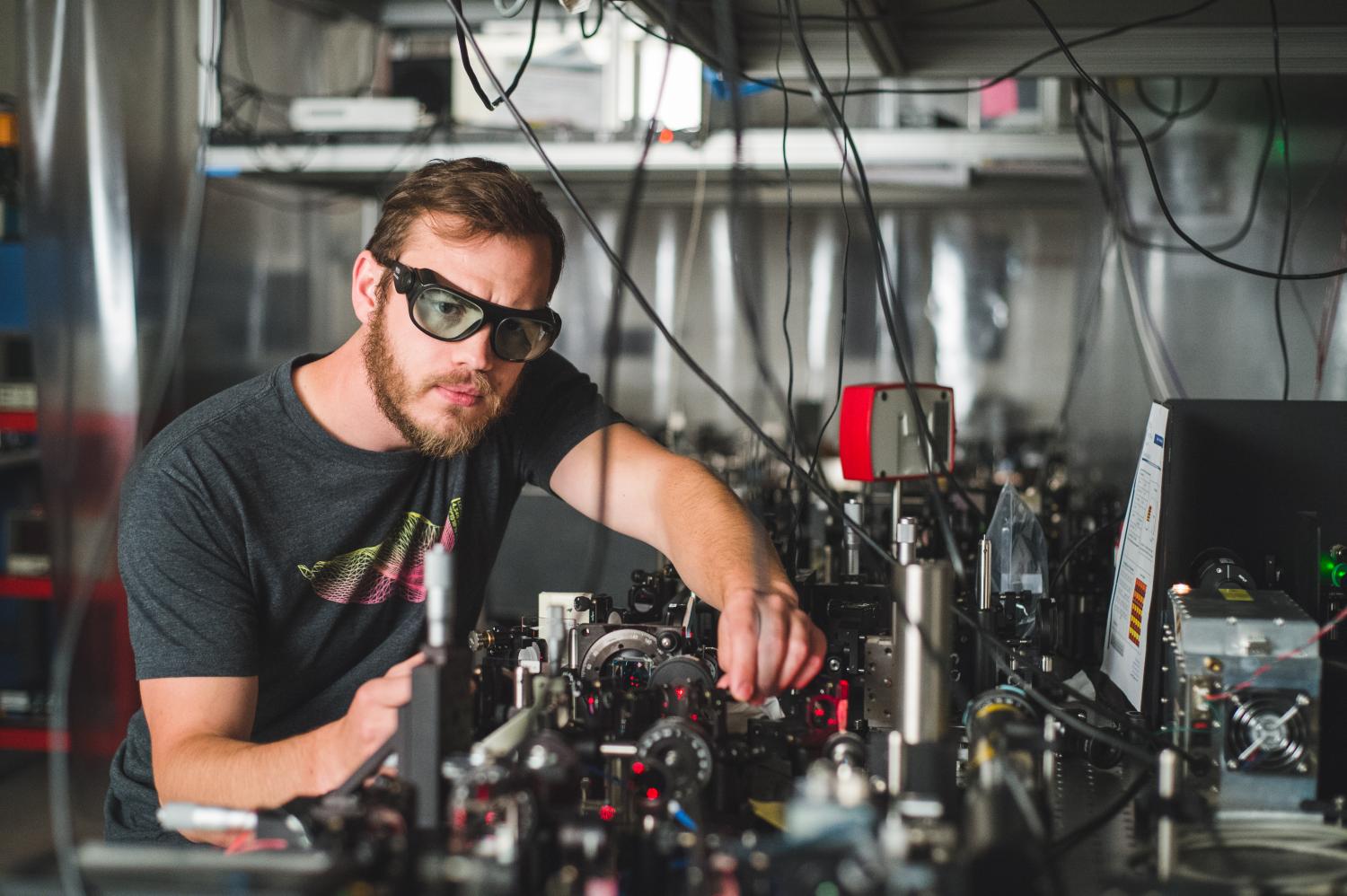How It Works

The MS-EE, hosted on the internationally acclaimed Coursera platform, is offered fully online and is almost entirely self-paced and on-demand.
Tuition
- Pay as you go.
- Tuition for the full 30-credit master’s degree is $20,000, or $667 per credit hour for graduate certificates and individual courses.
- There may be some additional costs for lab equipment or software licenses in specific courses. These will be charged at cost to the student and listed on course pages.
- This program is not currently eligible for U.S. federal financial aid.
Admission
Admission is based solely on your performance; there is no application. Fill out our simple form, pay tuition, and you are on your way. You must complete your coursework with at least a 3.0 (B) average to earn certificates and the degree.
MS-EE students earn the same credentials as our on-campus students. There are no designations on the transcript, certificate or degree that this is an online program.
Complete three steps to earn a master’s degree:
- Indicate your intention to pursue the degree on the Coursera platform.
- Complete a designated “pathway specialization” series of courses with a 3.0 (B) grade point average or above.
- Complete at least 30 credits with a 3.0 grade point average of MS-EE courses over the span of those credits. Course grades of lower than a 2.0 (C) cannot be applied to the degree.
Details
- Pathway specializations are worth about 3 credits and are applied to the 30-credit degree. You must have completed at least one pathway specialization to be awarded the degree; you may complete the pathway at any time during your academic journey.
- Select only the courses you wish to take to earn the degree. The degree is completely elective. Our automated degree indicator will help you keep track of your progress.
- Degree students may pursue one or more focused graduate certificates and apply them towards their 30 credits, if they choose (see “Graduate Certificates” below). All certificates begin with a pathway specialization.
- You may declare enrollment in the master’s degree at any point during your academic journey and apply your previously earned credit to the MS-EE.
- Students who declare for the master’s degree will have access to the global career platform Handshake and life-long membership in the CU Boulder Alumni Association.
- Degree earners will receive an official University of Colorado Boulder detailed course transcript and a diploma for a Master of Science in electrical engineering. Certificates are awarded as they are completed and are listed on the transcript.
- At about 9 credits in length, graduate certificates offer targeted skill building in areas like power electronics, the industrial Internet of Things, semiconductor photonics and more. They communicate your in-depth expertise to employers.
- Non-degree-seeking students may earn graduate certificates without pursuing the entire master’s degree.
- Degree-seeking students may earn and apply graduate certificates toward the full MS-EE.
- All graduate certificates include a degree pathway specialization, which may be taken separately or as part of the certificate.
- To earn a certificate, complete the designated courses with a 3.0 grade-point average. Certificates will be awarded automatically upon successful completion.
- Graduate certificate earners will receive an official University of Colorado Boulder certificate that will also be indicated on their detailed course transcript.
At this time, students may not transfer credits from another program into the MS-EE.
- The MS-EE is built around the principles of flexibility and stackability.
- Targeted, individual courses are designed to take about four to six weeks to complete.
- Courses are often offered for fractional credits. This is because we have redesigned our campus curriculum and redesigned it into focused, manageable topics that allow you the flexibility to pursue only the education you need.
- Courses are usually grouped into thematic “specializations” of three to four courses. Specializations help organize courses into areas of topical expertise.
- You may take individual courses or entire specializations. Degree-seeking students must successfully complete one pathway specialization. Graduate certificate students must complete a series of designated specializations to earn the certificates. Otherwise, students are not required to complete specializations.
- Every course will be listed on your transcript to provide an in-depth record of the specific skills you have learned. Specializations are not included on the transcript.
- A course is worth about 1 academic credit, and a specialization is worth about 3 academic credits.
- Each course in the MS-EE can be previewed or taken as a non-credit Coursera offering.
- You may upgrade from non-credit to credit at anytime during your coursework. Previously completed assignments will be automatically applied to your for-credit experience.
- Additional material and assessments must be completed to earn credit; these materials are only available to students who pay tuition.
- Explore non-credit options available now!
Specializations:
- Optical Engineering Specialization
- Semiconductor Devices Specialization
- Active Optical Devices Specialization
Courses:
Non-credit students may earn course and specialization completion certificates. These non-credit completion certificates do not offer the same content or carry the same authority or rigor as for-credit credentials. Non-credit completion certificates do not imply the conferral of credit from the University of Colorado Boulder. They do not appear on the student’s transcript.

